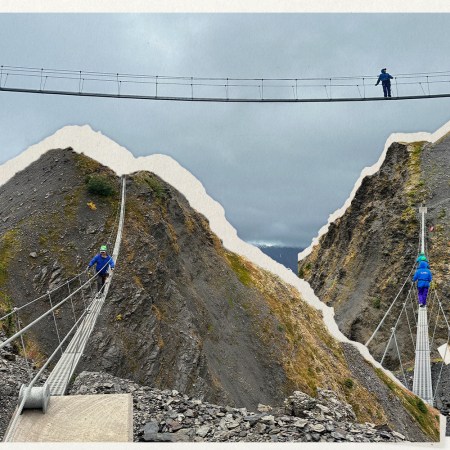Nearly half of Americans — 42% — won’t take a vacation this summer.
That is not a statistic to celebrate.
Before we get into it, let’s parse this stat a bit. Skift asked 1,300 American adults about their summer plans. Maybe 58% of Americans prefer to take their vacations immediately after Labor Day — hey, it’s shoulder season! They’d come up as a “no” in this survey. And as Skift points out, it doesn’t include casual-but-revivifying trips, like weekends away with family.
The trend, though, is clear and well reported. Relative to our European brethren, Americans get paltry vacation time to begin with, and we leave much of it on the table. From a 2015 Expedia survey of vacation habits in 26 countries: “Germany, France, Italy, Spain, Sweden, Denmark and Finland are all offered 30 days off. The Germans, French, Spanish and Finnish use nearly all of those days, while the Danish take 28, Italians take 25 and Swedes take 25.” According to the survey, Americans get 15 vacation days and take 11. Wonder how many of those 11 days went to doctor’s appointments and recitals? Or how the gig economy further ensures that Americans are working 24-7-365 with second or weekend jobs?
Perhaps Americans are so captivated by their dynamic professional lives that they can’t bear to be away from their desks — so devoted to unraveling the intricacies of their life’s work that they’ll ignore studies that firmly connect time away from the office with increased productivity and better performance. Perhaps, compared to sclerotic Europe, we’ve just got so much great stuff going on that we don’t even want a break.
That, obviously, is wishful thinking at best, and propaganda at worst.
Europeans don’t take more vacation because they’re lazy or because they like vacation more than we do — they take it because they can do so without worry. What all of those countries have in common, in addition to generous, and forcefully protected, vacation policies, are durable social safety nets that protect citizens’ access to health care, education, housing and food.
Swedes don’t have to worry that going on vacation could cost them their job — and their health insurance, because healthcare isn’t associated with their work.
Germans don’t have to worry that going on vacation could cost them their job — and keep them from putting food on the table, because the country maintains rich benefits for the unemployed (head-spinning, for Americans), especially for parents.
And the French don’t have to worry that going on vacation could cost them their job, at all — because strict labor laws protect workers from dismissal in a way many full-time “at will” employees in the U.S. — to say nothing of our part-time and seasonal labor — would find mind-boggling.
Yes, some of this is changing. Emanuel Macron’s election in France indicates a desire to loosen some of those protections, to help French businesses strengthen their hand internationally. But he’s not sitting on a bedrock of support; those battles will be fought in the street, and fought hard. Macron only just beat Jean-Luc Mélenchon in the first round of the country’s recent presidential election — and Mélenchon is a communist who supports a 100% (yes: 100%) tax on annual income above €360,000.
People don’t skip vacation because they prefer to work — they do it because of economic insecurity. Because they don’t want their boss, who’s maybe a dick, to have a reason to fire them. Or because they can’t keep up with their workload since half their department got laid off. Or because they have two jobs. Or because they’re so exhausted that they don’t have the bandwidth to plan a trip and it’s easier to just stay home.
People in those situations get angry. But as long as we choose to trust our employers with our healthcare; as long as we choose to restrict and stigmatize support for the poor and unemployed, this is what we’ll have: a strung-out, stressed-out workforce — and the closest many of us will get to a beach is the picture on our screensavers.
This article appeared in an InsideHook newsletter. Sign up for free to get more on travel, wellness, style, drinking, and culture.























